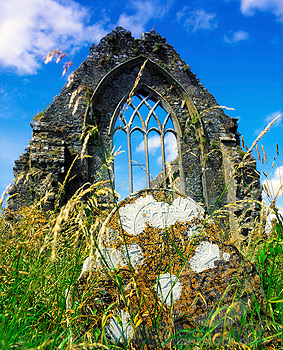By David Gibson
Religion News Service

It may seen an odd question for a religious culture that once stretched from Britain to the Bosphorus, born of a deep and diffuse faith that inspired great cathedrals and monasteries and filled them with believers for centuries.
But when right-wing extremist Anders Breivik killed 77 people in a horrific rampage in Norway last month, he highlighted a novel development in the history of the West: a burgeoning alliance between believers and nonbelievers to promote Europe's Christian identity.
"European Christendom and the cross will be the symbol in which every cultural conservative can unite under in our common defense," Breivik wrote in his rambling 1,500-page manifesto. "It should serve as the uniting symbol for all Europeans whether they are agnostic or atheists."
Whether Breivik himself can be considered a bona fide Christian given his lack of a "personal relationship with Jesus Christ and God," as he put it, was a topic of much debate. There was no doubt, however, that he was a devout believer "in Christianity as a cultural, social, identity and moral platform."
In fact, that's been the case for any number of unbelievers for more than a decade.
One prominent example was the Italian journalist Oriana Fallaci, who spent her last years before her death in 2006 inveighing against a Muslim influx that was turning the continent into what she called "Eurabia."
Fallaci liked to describe herself as a "Christian atheist" -- an interesting turn of phrase -- because she thought Christianity provided Europe with a cultural and intellectual bulwark against Islam.
There's also Scottish-born historian and political conservative Niall Ferguson, who calls himself "an incurable atheist" but is also a vocal champion for restoring Christendom because, as he puts it, there isn't sufficient "religious resistance" in the West to radical Islam.
(Ferguson dedicated his latest book, "Civilization: The West and the Rest," to his new partner, Ayaan Hirsi Ali, the Somali-born Dutch atheist who has promoted the values of Christianity over those of her native Islam.)
The modern-day crusade for Christendom by nonbelievers tends to be rooted in fears about Muslim immigration, but it's also fueled by worries about the deterioration of European culture -- and nostalgia for the continent's once central place in world affairs.
For some atheists, retaining European identity is reason enough to set aside long-standing enmity between churches and nonbelievers that dates back to the secularism of the Enlightenment and the anti-clericalism of the French Revolution.
And unlike the persistent sniping between atheists and believers in the U.S., Europe's nonreligious conservatives have found ready allies in the continent's religious leaders -- most notably Pope Benedict XVI.
Even before he was elected pope in April 2005, Cardinal Joseph Ratzinger was spearheading the Vatican effort, however unsuccessful, to have the European Union's new constitution recognize the continent's Christian heritage. He also rejected the idea of allowing Muslim Turkey into the EU. "Europe is a cultural continent," he told a French magazine, "not a geographical one."
As pope, Benedict eventually softened his opposition to Turkey's entry into the EU but continued to insist that Europe's Christian culture must be protected, even as religious belief among Europeans declined.
In August 2005, just a few months after his election as pope, Benedict met secretly with Fallaci, news that upset Muslims when it leaked out. Muslims were even angrier at the pontiff's controversial speech a year later in Regensburg, Germany, when he depicted Islam as prone to violence and alien to Christian Europe.
"Attempts at the 'Islamification' of the West cannot be denied," Benedict's closest aide, Monsignor Georg Ganswein, said in a 2007 interview. "And the associated danger for the identity of Europe cannot be ignored out of a wrongly understood sense of respect."
"The Catholic side sees this clearly," he added, "and says as much."
But some atheists see this as well, and are equally happy to say so.
One of Christendom's most prominent atheist advocates is the Italian philosopher and politician Marcello Pera. In 2004, he delivered a series of lectures with then-Cardinal Ratzinger that set out their shared view of the need to restore Christian identity in Europe in order to battle both Islam and moral degeneration.
Later, Benedict wrote a forward to Pera's book, "Why We Must Call Ourselves Christians," which promotes Benedict's argument that Western civilization can be saved if people live "as if God exists," whether they believe that or not.
It's not a new argument -- 17th-century French philosopher Blaise Pascal held that even if God's existence cannot be proved, people ought to act as though God exists because they have nothing to lose and everything to gain.
But the updated version seems to be winning some converts. In a landmark ruling last March, the European Court of Human Rights ruled that Italy could continue to display crucifixes in public school classrooms because the cross with Jesus on it is a "historical and cultural" symbol rather than a religious one.
While the Vatican welcomed that decision, others wonder whether the cost was too high -- essentially emptying a container of its meaning in order to preserve the cultural form.
And an empty container, no matter how attractive on the outside, can be filled with all manner of beliefs on the inside.

